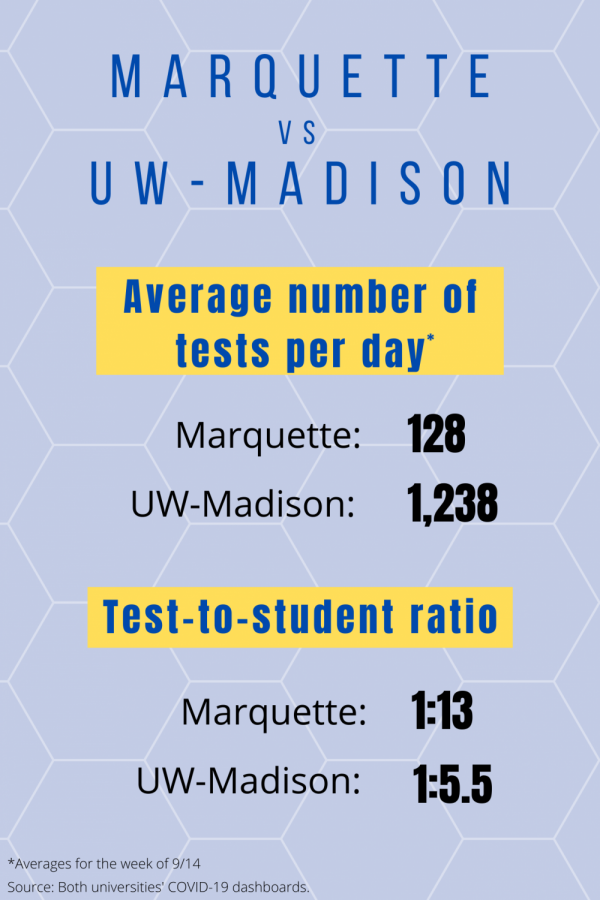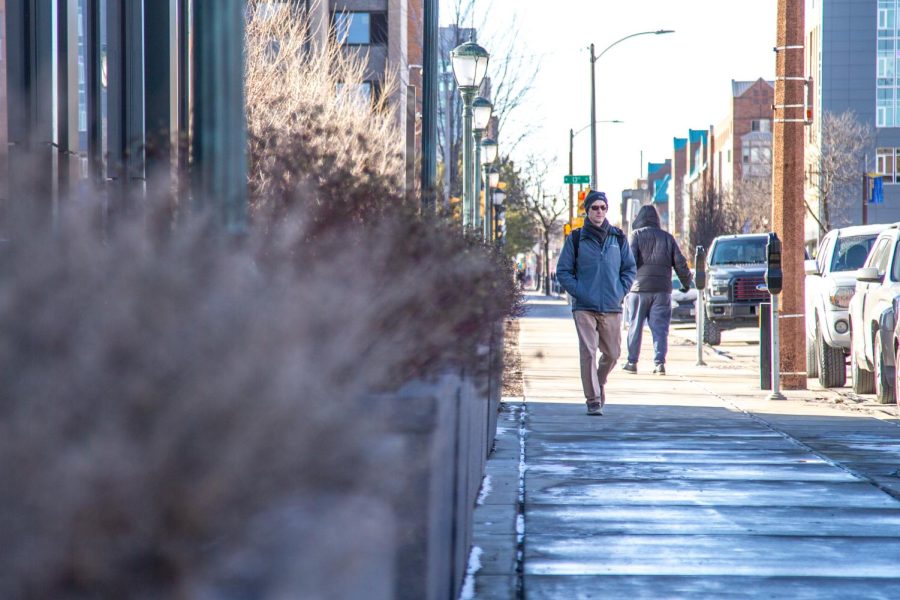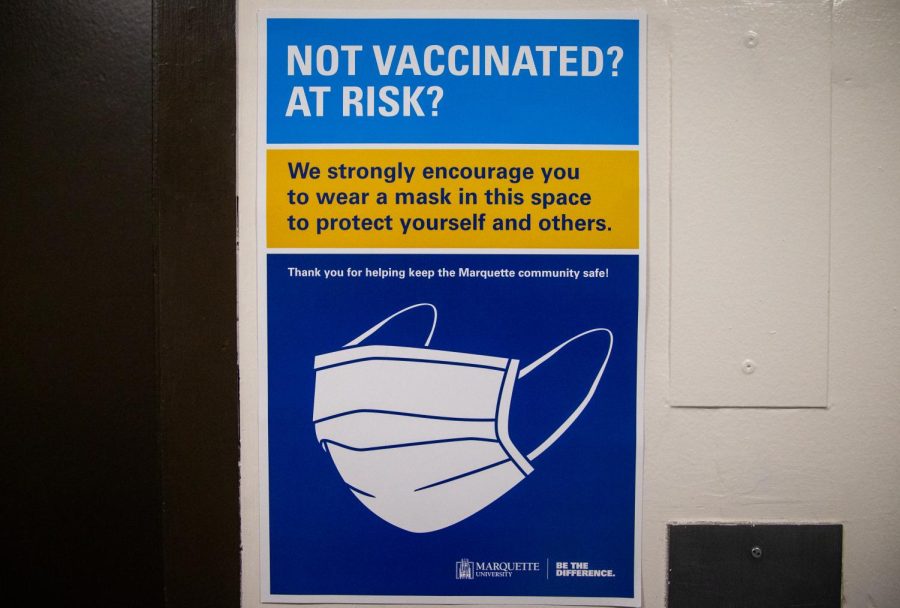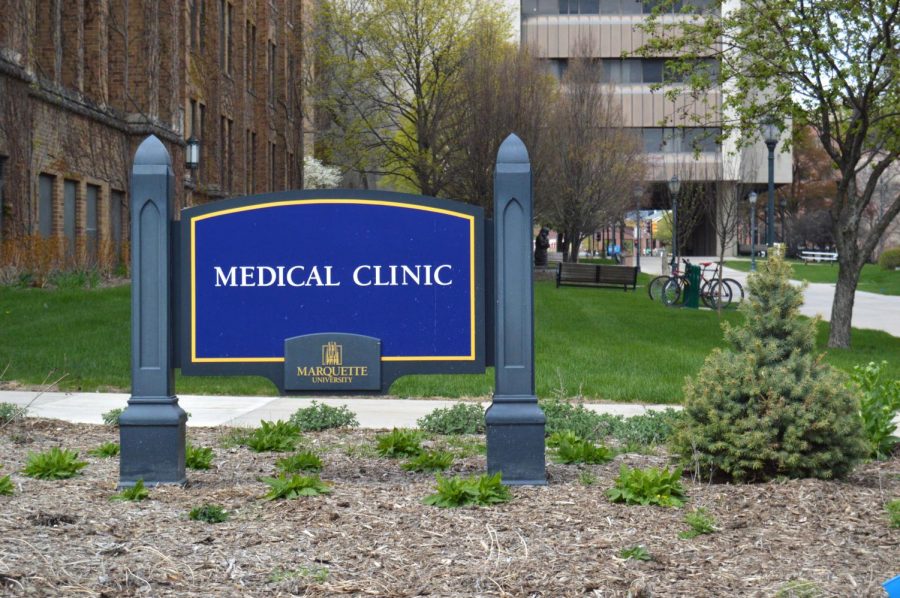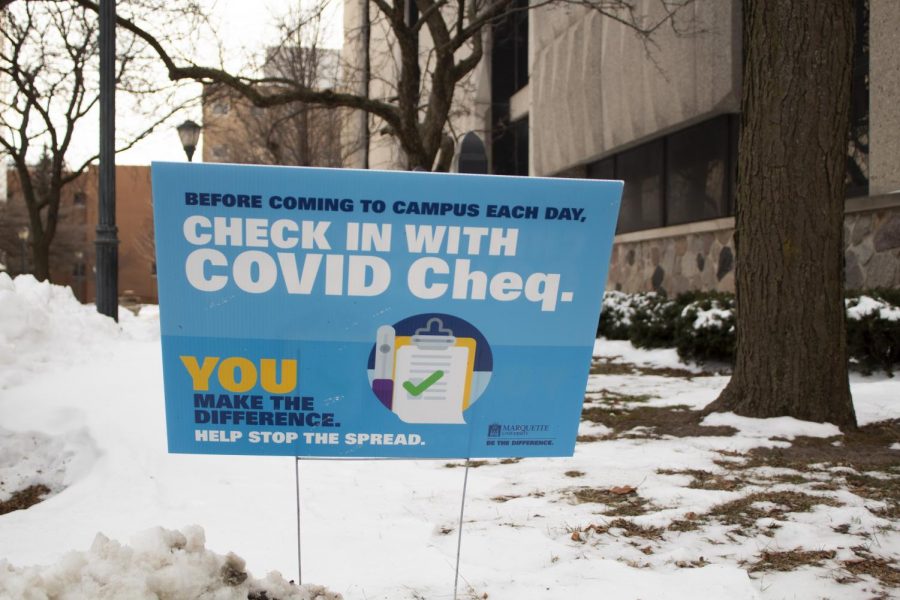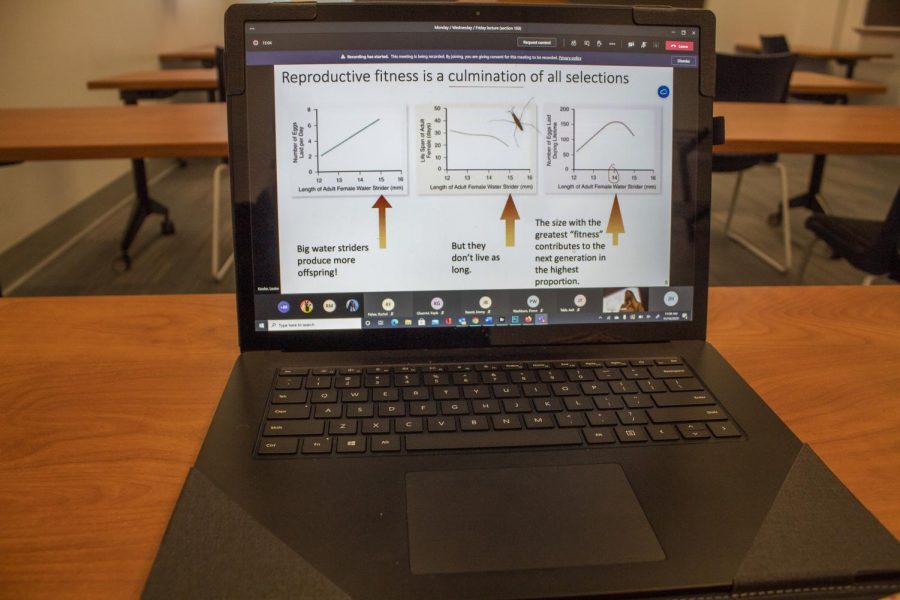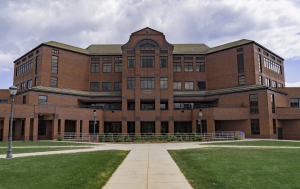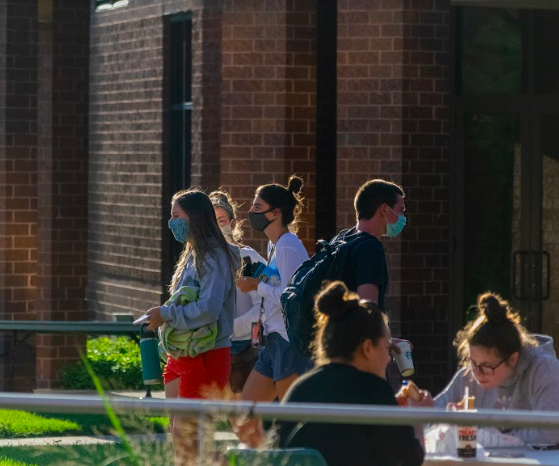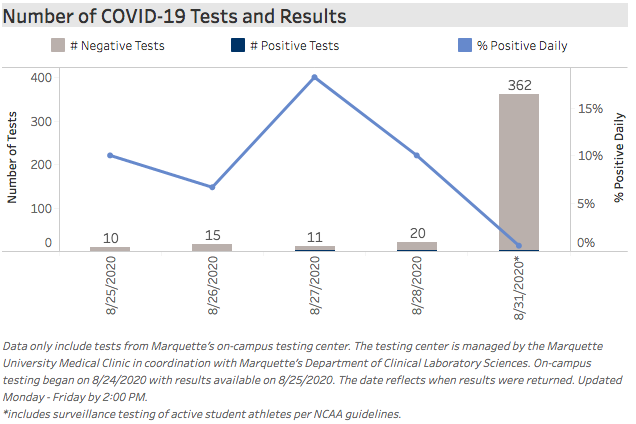As many schools across the country are closing lecture halls and transitioning to online classes, including the University of Wisconsin-Madison, the eyes of Marquette’s students and faculty are turning to administrative leaders for what the next step may be.
Amy Blair, a professor of English, said she is concerned about how Marquette is handling the COVID-19 situation on campus. She said she has been getting increasingly worried about how Marquette is executing its “ethical responsibility to its students this term.” She said she feels more should be done to protect and inform students.
Blair cited the recent rise COVID-19 case numbers on campus — which saw its biggest single-day rise in cases last Friday — according to Marquette’s COVID-19 Dashboard, and the use of only symptomatic testing as some of her main sources of worry for her.
Other worries included Marquette’s decision to quarantine Schroeder Hall following 3% of the building’s residents testing positive.
Blair argued that the way things are structured at Marquette “seem to incentivize people to not want to go get tested.” She said students are worried about missing their in-person classes or being banned from eating in dining halls. Blair also questioned the strategy of Marquette’s COVID-19 prevention plan.
“The minimal amount of testing paired with the high concentration of students in one area makes it feel like Marquette may be inadvertently creating a COVID hotspot without even really knowing it,” Blair said.
The Marquette COVID-19 Dashboard, which currently gives data up to Sept. 20, shows a total of 1,568 tests that have been administered and received by Marquette since the start of the school year.
Of those results, 362 were received on the same day that Marquette athletes and coaches got their results Aug. 31., and 637 more of those test results came on the same days that the results for the mandatory COVID-19 tests in Schroeder Hall came in. This leaves a semester-long total of 569 test results — an average of 29 a day — that were not received on one of those three days.
In the last week, UW-Madison has done an average of 1,238 tests per day, whereas Marquette did 128 results a day if the Schroeder Hall tests are included and 52 results a day if they are not included.
When accounting for school population sizes, in the latest week for each school, Marquette did 1 test for every 13 students at the end of the last week, while UW-Madison did 1 test for every 5.5 students at the end of the week.
Marquette only tests students who are symptomatic, according to previous Marquette Wire stories. Multiple students have told the Marquette Wire that they have been turned away from tests because they lack the proper symptoms.
One of the measures that Marquette has put into place to combat COVID-19 and help advise students on whether or not they need to get tested, is the COVID Cheq that students must do each day. COVID Cheq is a survey that consists of health-related questions that range from one’s temperature to the kinds of symptoms they may have. The questions are filled in by an individual, and, based on the answers, they are deemed either eligible or not to go to class.
Margo Hartman, a sophomore in the College of Communication, said she feels that COVID Cheq is not effective and that nobody uses it. Hartman even said that she will “go through the motions” when filling it out for fear of not being able to go to class.
“I hardly take my temperature unless I’m feeling sick. As for the symptoms, if I have a headache I don’t mark it because I know it’s just a regular headache and it’s not worth putting it down,” Hartman said.
Hartman even expressed that doing the COVID Cheq is a sad way to start the day and for that reason resents the function to some capacity.
“I started off strong but slowly have given up, nowadays it’s just a reminder that we’re still living in this world so it kinda starts my day off with that reminder, and it’s not the best way to start the day,” Hartman said.
Somers Welton, a sophomore in the College of Arts & Sciences, echoed said that she does not take the COVID Cheq seriously because, given the fact that she has three classes that primarily meet in person, she fears being wrongfully assessed as a potentially infected person.
“I normally just click through it, sometimes I might have a headache or sore throat but I know it’s probably from something else so I don’t feel the need to fill it out,” Welton said. “I’m not sure what would happen if I didn’t pass that check and I don’t want to quarantine because of it.”
Welton said she is unsure about whether COVID Cheq does what it is intended to do.
“I personally don’t think it does anything because I’m sure people can’t really tell if they have symptoms or what they are from and so they probably click through it. It might help remind people not to go to class if they think they are sick but I think there could be more effective ways to do that,” Welton said.
Currently, the Marquette testing facility only tests symptomatic students. Faculty members like Leah Flack, head of Marquette’s English department, had to drive 40 minutes to her nearest testing center to get tested after being unable to get a test at Marquette. Additionally, unlike the many adjunct faculty and graduate students, she had the benefit of health insurance that enabled her to get this testing. Many instructors on campus do not have this luxury.
“Testing is expensive and not widely available, but if you want to say to yourself at the end of the day that you have done everything in your power to track this virus on a college campus, then you have to do it. It is not only a financial question — it is a moral question, too. We need to live up to our values for the health and safety of our entire community,” Flack said.
Flack also confirmed that there is a rising sense of unease among faculty as they feel their health is not being prioritized or protected adequately in such uncertain times.
“A lot of people are very nervous about teaching in person. They have families, they have a lot of anger that they may be risking their lives to keep their jobs. They are worried about their students, and they are angry because they worry that everyone is at risk. However, if everyone wants on-campus learning, this is what is going to happen,” Flack said.
As of Sept. 21, Marquette’s COVID-19 Dashboard only grades the on-campus situation as “moderate,” which according to their website means the “threat of outbreak remains.”
This story was written by Beck Salgado. He can be reached at [email protected].

